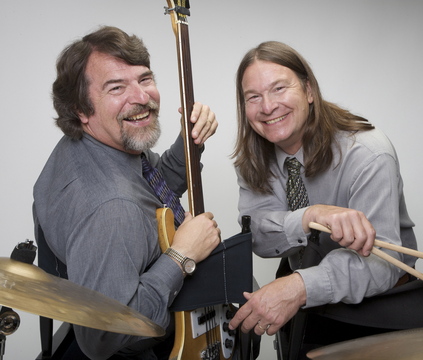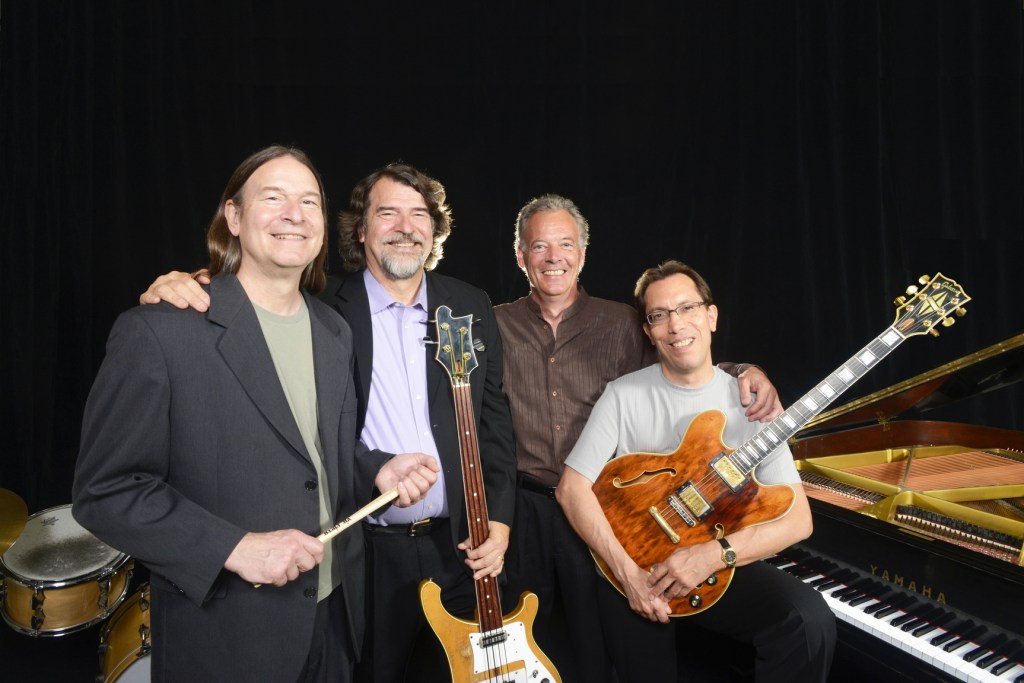The first time Chris Brubeck heard the Portland Symphony Orchestra perform, he was in a seat at Merrill Auditorium as a member of the audience. It was spring 2011, and the orchestra was performing his piece “Interplay,” for three violins and orchestra.
He drove up from his home in Connecticut. “I just came to listen. Robert Moody invited me up.”
His impressions of the orchestra?
“I was astounded how great it was. Really, really good.”
When he and his brother, Dan, and their quartet return next weekend, they will be on stage, joining maestro Moody and the orchestra for a pair of pops concerts that feature the music of their father, the late jazz titan Dave Brubeck. The Brubeck Brothers Quartet also will perform with the orchestra in a pair of PSO Youth Concerts concerts Nov. 4.
Dave Brubeck, who died last December one day shy of his 92nd birthday, is widely considered a jazz pioneer. His son called him “a gateway drug” to jazz. Get hooked on Dave Brubeck, and you get hooked on jazz, he said.
Dave Brubeck was the second jazz musician featured on the cover of Time magazine, in 1954. Louis Armstrong was the first.
He was a Kennedy Center honoree in 2009. At that time, President Obama said, “You can’t understand America without understanding jazz, and you can’t understand jazz without understanding Dave Brubeck.”
He was a pioneer, in part, because he combined his love of jazz with his academic training in classical music. “Dave was not trying to appeal to anyone,” his son said. “But what he did was he appealed to a lot of people. He was a genius.”
The work wasn’t easy, because it required an integration of sorts that was revolutionary in American culture. Brubeck improvised with cool jazz cats on one project and composed with stuffy classical artists on others, barely thinking twice about why it might not work and instead plowing forward and trusting his musical instincts.
Back in the day, Chris Brubeck, now 61, remembers coming into symphony halls with his father and his band and being treated rudely by the classical establishment. Many of the musicians would have “500 wads of Kleenix in their ears. There was this sense, ‘Uh-oh, the jazz artists are coming. We’re slumming now.’”
Dave Brubeck, a pianist, helped change that perception and reception, an effort carried forward by the likes of Wynton Marsalis and Yo-Yo Ma, whose music crosses genres and boundaries in much the same spirit as Brubeck’s.
Now, when Chris and Dan Brubeck show up with their quartet, they are treated respectfully, and recognized as part of a jazz lineage that helped shape the face of music in America for much of the late-20th century.
Part of the reason for that, Chris Brubeck said, is that many of the best music conservatories in American began incorporating jazz into their curricula around the time that Dave Brubeck started breaking down barriers between musical genres. That effort is embodied in contemporary American orchestras, whose members shared classrooms with jazz guys.
“Now we have orchestras filled with people who have friends they went to school with who are jazz musicians, and they are not looking down at jazz. In fact, they’re looking up to it,” Brubeck said. “There is no attitude at all. It’s been totally reversed.”
Conductors like Moody represent that evolution, Brubeck said.
“He’s obviously a different generation of conductor. He is very open-minded and he can find equal artistry doing any of the classical war horses, and he also authentically loves modern music. He’s enthusiastic about wide swath of music, and not snobby about it at all,” Brubeck said.
The Brubeck Brothers Quartet will perform many of Dave Brubeck’s best-known compositions, such as “Take Five,” “Blue Rondo à la Turk” and “In Your Own Sweet Way,” as well as songs that Chris has written. The quartet, which also includes Chuck Lamb on piano and guitarist Mike DeMicco, will perform with and without the orchestra.
It’s been just less than a year since Dave Brubeck’s death. His son said life is different now. He misses his dad, and misses running ideas by him. He misses their regular banter.
But he knows that his dad’s legacy is alive in his music.
“Life without dad is surprisingly consistent. You know the old saying that his spirit lives on through the music? Now that I am living on the other side of his passing away, I realize that his music is so much alive within me, both as a composer and as an arranger.”
Staff Writer Bob Keyes can be contacted at 791-6457 or:
bkeyes@pressherald.com
Twitter: pphbkeyes
Copy the Story LinkSend questions/comments to the editors.





Success. Please wait for the page to reload. If the page does not reload within 5 seconds, please refresh the page.
Enter your email and password to access comments.
Hi, to comment on stories you must . This profile is in addition to your subscription and website login.
Already have a commenting profile? .
Invalid username/password.
Please check your email to confirm and complete your registration.
Only subscribers are eligible to post comments. Please subscribe or login first for digital access. Here’s why.
Use the form below to reset your password. When you've submitted your account email, we will send an email with a reset code.